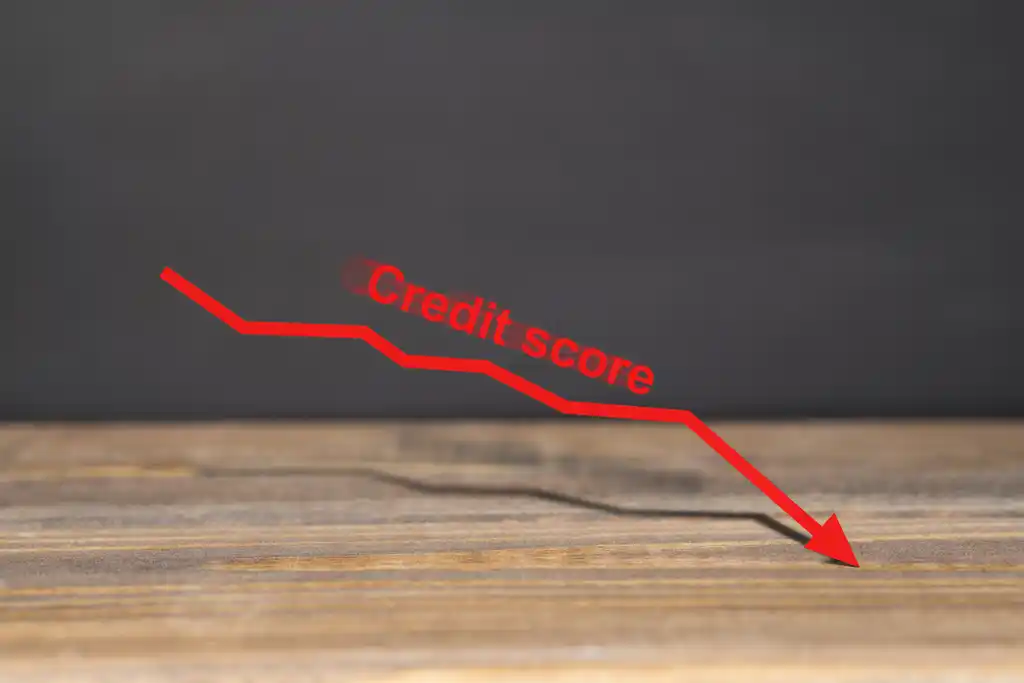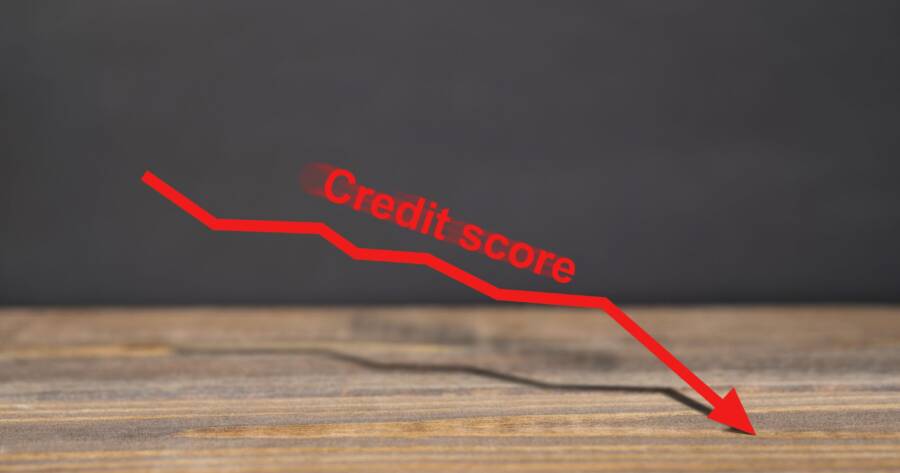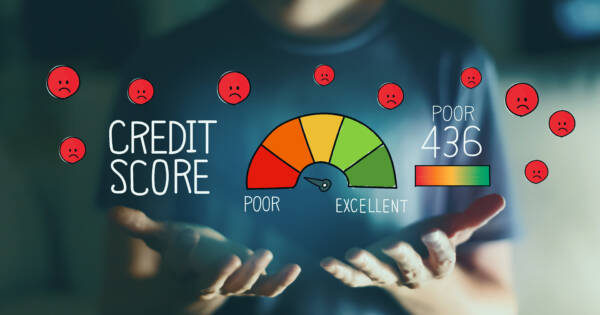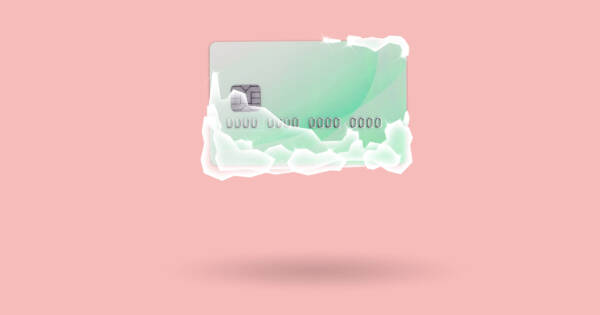If you already have some degree financial savvy — we’ll assume you do, since you’re here on our site — you probably check your credit score regularly. If you don’t, now is the time to start. You can check your credit score for free in places like Credit Karma or the three main reporting bureaus — Experian, Transunion, and Equifax. Whether you already have a great credit score or are actively working to build it up, it can be disheartening to see your score suddenly drop. “Why did that happen?” you think to yourself.
The truth is that your credit score it made up a lot of different parts. Usually, a small dip in your score is nothing to worry about. If you’re normally in control of your finances, you shouldn’t even worry about it. However, if the drop is drastic or seemingly unexplained, you might want to dig a bit deeper. Here are some of the most likely reasons your credit score may have dropped.
Hard Credit Inquiry
If you’ve recently applied for a new piece of credit, it likely came with a hard credit inquiry. Whether it’s another credit card, a car loan, or something else, a new credit application will temporarily ding your score. If you string a bunch of new credit applications together in a short period of time, your score will drop even lower.
The good news is that hard inquiries don’t stick around forever. They only stay on your credit report for two years. Even better, they are only factored into your score if they occurred in the last 12 months. They also only make up about ten percent of your credit score, meaning applying for a new credit card or other loan shouldn’t drop your score too drastically.
Major Purchase
One of the major calculations of your credit score is “credit utilization.” If you’re unsure what the means, it’s a pretty simple concept. The more credit that you have, but aren’t actively using, the better your credit utilization is. For example, having a credit card with a $15,000 limit but keeping the balance as $0.00 if great for your utilization. Having the same card with an average monthly balance of $12,000 is eating up a lot of utilization.
If you recently splurged on a big ticket item — say, a new TV, a car down payment, vacation — and paid via credit, your score may suffer. Credit bureaus will see reports that your utilization went way up, and adjust your score accordingly. The good news is that can be a temporary dip. Maybe you only paid with your credit card to score some excellent rewards points. If you promptly pay off the balance, your utilization returns to normal. However, if you’re using money you don’t actually have to splurge on expensive items, your score might drop for a while. Not to mention that doing so is generally considered a bad financial move.
Something Was Sent To Collections
If one of your debts was sent to a collection agency, your credit score is going to go down. We don’t just mean traditional credit products either, like credit cards, lines of credit, or car loans. If one of your utility (heat, gas, hydro) or telecom bills (internet, TV, cell phone) goes unpaid long enough, it will be sent to collections. That will show up on your credit report, and not in a good way.
The key thing to remember about collections on your credit report is that they won’t magically disappear. Even if you believe they are a mistake, it’s your responsibility to clear it up. Or maybe you just genuinely forgot about an outstanding bill. That’s not a great look. However, contact the company that owns the debt. Note that it may have already been sold to someone else if it’s in collections already. Come up with a plan to pay it off, and then stick to those terms. Once the debt is paid, the collections notice will eventually drop off your credit report, improving your score.
Your Limits Were Lowered
We’re back to credit utilization, only this time it’s the opposite problem. Instead of making a big purchase which uses up a big chunk of your credit, your score will also drop if you just suddenly have less credit. Yes, even if you didn’t actually use it.
Your credit limits can be lowered for a few different reasons. Maybe you requested a lower limit in order to avoid the temptation of spending big. Or maybe you wanted a lower limit to make a mortgage application look more favorable. Perhaps your bank actually forced a lower credit limit you. It’s rare for them to do this, but there are situations where it happens if you’ve proven to be a high risk lender.
The end result of lower credit limits is a lower credit utilization. That means a lower credit score. If you have been carrying a credit card balance and finally pay off a big chunk of it, don’t ask for the limit to be lowered. You might think you’re protecting yourself from letting the balance creep up again, but you’re hurting your credit score in the process.
You Missed a Payment
As you might have guessed, making payments on time is a huge part of your credit score. You probably don’t have to fret too much if you accidently pay your cell phone bill a day late. However, any payment that is more than 30 days late will get reported to the credit bureaus. That goes for utility bills, as well as things like car payments, mortgage payments, and minimum credit card payments too.
Even a single late payment might cause your credit score to drop. A history of routine late payments will have an even more drastic effect. Unfortunately, there isn’t much you can do to fix this kind of drop in a hurry. Payment history lingers on your credit report for quite a while, so only many months of on-time payments will restore your score. Of course, if you believe a missed payment on your credit report is a mistake, you need to take immediate steps to resolve it.
You Closed a Credit Card
Closing a credit card has a couple of negative impacts on your credit score. First, it lowers your credit utilization. We’ve already told you why that matters. Second, it might reduce your credit history. This is especially true if you close one of your oldest credit cards. The longer your credit history, the better.
So what happens if you want to finally ditch that entry-level credit card you’ve had since you were 18, in favor of one with better rewards and a lower interest rate? The best answer, actually, is to just keep the old one — especially if it has no annual fee. Throw it in your sock drawer and forget about it. You can always dig it out in an emergency, but not cancelling it will keep your credit score high.
The same logic applies if you decide that a balance transfer from one card to another will save you some money. Don’t immediately cancel the newly zeroed out card. Just stop using it.
Did Someone Else Miss a Payment?
This is something you need to keep in mind if you’ve ever co-signed on a financial product. Maybe your friend or relative didn’t quite qualify for that credit card or car loan on their own. Wanting to be a helpful person, you agreed to co-sign with them. Sure, you made a handshake deal that you wouldn’t be on the hook for any payments. Unfortunately, the banks and credit bureaus won’t recognize a pinky swear promise from your brother-in-law.
If a debt you co-signed on is missing payments (or worse, sent to collections), we have bad news. You’re on the hook for it too. You might think that’s unfair, since it wasn’t you that acted financially irresponsible. Too bad, though. That’s the risk of co-signing any sort of loan or credit application for someone else. It’s also why financial experts don’t recommend doing it unless you absolutely have to.
If a co-signer is struggling to properly service their debts, your score is going to take a hit too. The only thing you can really do about it is speak to the co-signer and try to come up with a plan to get back on track. If you’re worried about your credit score, maybe you can float them an interest-free loan to catch up on the payments. Then again, they’ve already shown a history of not paying back money they owe. It’s a catch 22, with no easy answers.
Did an Authorized User Do Something Fishy?
Even if you didn’t co-sign for anyone, there are other ways that someone else could negatively effect your score. It’s a common practice for parents to make their children authorized users on their credit cards around the time they are 16-years-old. It usually coincides with your kids getting their driver license, since you want them to be able to handle an emergency if they get stranded somewhere. That’s not the only kind of authorized user, though. Some people will give the privilege to their spouse or extend it to a friend who is trying to build their credit.
If your authorized user does something you didn’t expect, your score could suffer. Whether they make a huge purchase, try to change your credit limit, or stop paying their agreed share of the bills, your credit score will drop. You can remove an authorized user at any time, but that won’t magically erase any damage they have already caused. Only extend an authorized user invitation to someone you explicitly trust. Otherwise, be prepared to pay for any of their mistakes.
There’s a Legitimate Mistake
Speaking of mistakes, they do happen. Not your own boneheaded financial decisions — we’re talking about legitimate errors by the bank or credit bureaus. It’s sad to say, but it happens all the time. Maybe you have a common name, and your credit ended up mixed with someone else’s. Or a typo was made somewhere and you didn’t receive credit for a payment you definitely did make. It’s frustrating and stressful when this happens, especially as you watch your credit score drop despite knowing it shouldn’t.
Don’t panic. It can be fixed. First, arm yourself with as much legitimate proof as you can that the mistake is real. That could be bank statements, receipts, tax documents, collections notices, or literally anything else that proves the credit report is wrong. The contact the credit bureaus and report a dispute. If you are telling the truth, there’s likely a legitimate way to fix the mistake. Be patient.
Identity Theft
In a more extreme case, you may have been the victim of identity fraud. We’re not talking one missed bill payment here. Instead, you might see multiple new credit applications opened in your name in a short period of time. It can be terrifying, but there are steps to take to fix it. First, report your identity stolen to the government and to the three credit bureaus. You may have to file formal disputes for every unauthorized attempt to open credit in your name. Talk to your bank and put a freeze on your credit.
Clearing up identity theft isn’t a quick process. It may takes months, or even years, to rid yourself of that stain. Stay persistent, though, and your credit score will recover. One of the biggest ways you can prevent large scale identity theft is by regularly checking your credit report. Not just the overall numerical score, either. Take a few minutes to scroll through the entire report, and make sure there’s nothing surprising in it. If you see something unexplainable, don’t ignore it.
Your Old Bankruptcy Expired
Hopefully you’re never in a position where bankruptcy is your only option. However, declaring bankruptcy is the unfortunate reality for many Americans every year. It will obviously do severe damage to your credit score, but when you’re that deep in a financial hole, there are very few good options available.
If you have a bankruptcy in your past, you might see your credit score drop when it reaches seven years old. Or ten years old, for a Chapter 7 bankruptcy. At first this seems contradictory. After all, shouldn’t your credit improve as a bankruptcy gets older and older?
When a bankruptcy drops off your credit report, you often get switched to a different credit “scoreboard.” That means that you are now being compared to other people who also don’t have a bankruptcy on their record. Before, you were being compared to others who also filed for bankruptcy.
This switch might cause your credit score to drop. However, try not to stress about it. Getting that bankruptcy behind you (and off your credit report) is far better for your score in the long run. It may be a bit sobering to see your score drop, but it’s ultimately better to be on the new scoreboard with other financially responsible folks.
The Last Word
Credit scores can seem complicated. However, with a little research and education, they aren’t that hard to understand. The important things are to pay your bills on time, not max out your credit utilization, and to not every extend yourself. You also need to be careful about who you let use your credit, whether through co-signing or authorized users.
If you see a sudden drop if your score, don’t panic. It’s probably something obvious and explainable. Even better, your score will likely rebound as long as you take the proper steps. Just don’t expect it to happen fast. Credit scores are usually slow moving. Since they factor in multiple years of history, one solid month of financial responsibility isn’t going to magically fix a low score. Be patient and prudent, and your score will rise again.
 Shutterstock
Shutterstock







